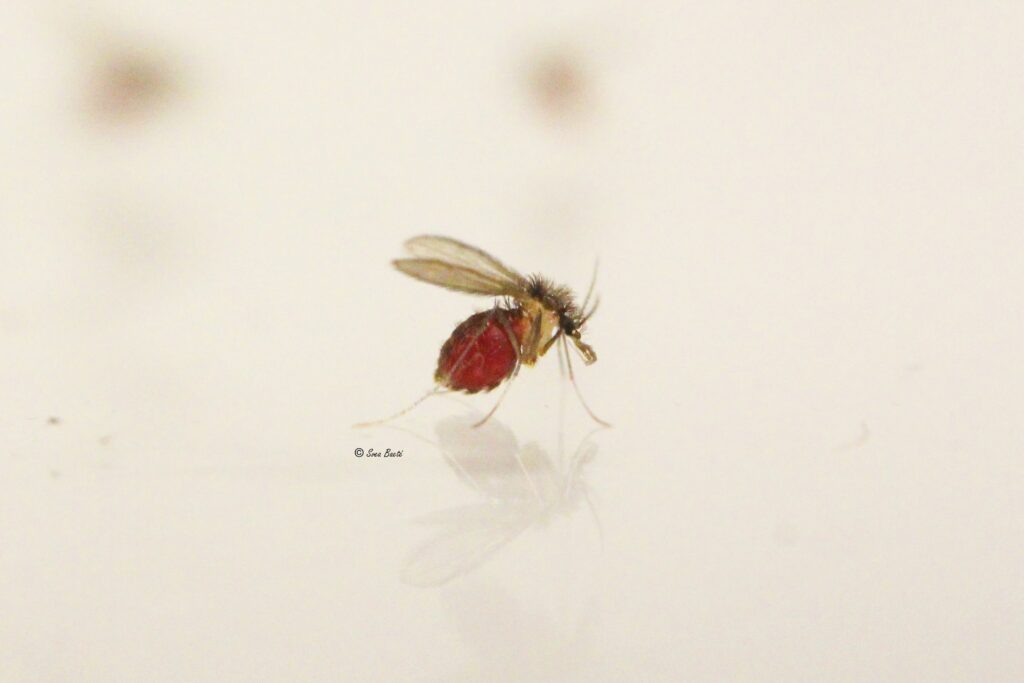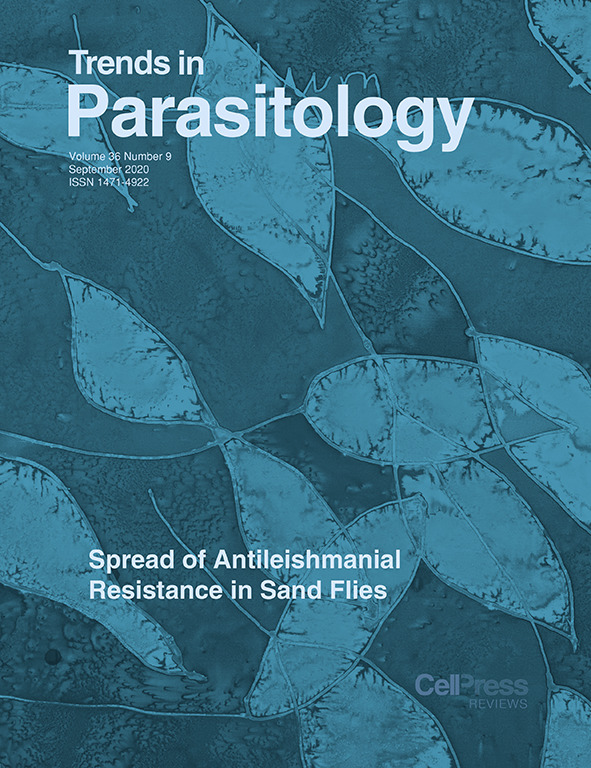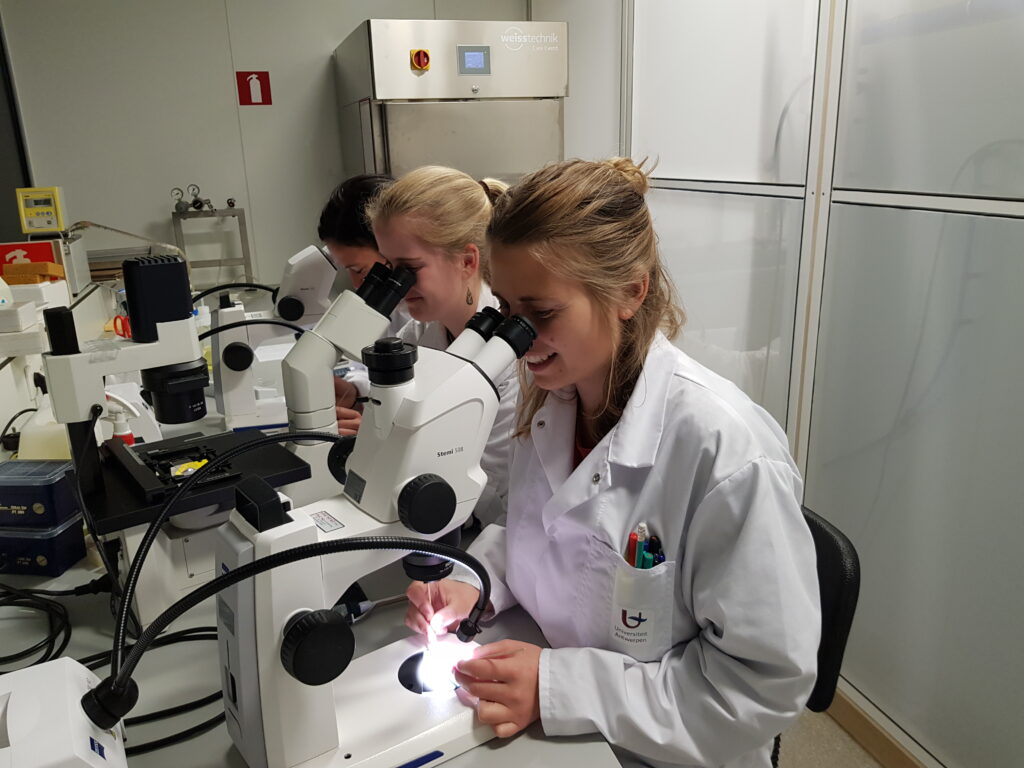
Leishmaniasis is a neglected tropical parasitic disease caused by Leishmania species that are transmitted by the bites of female sand flies. The failure rate of leishmaniasis treatment is rising in recent years due to the emergence of resistance to the major antileishmanial drugs. Evaluating the impact of drug resistance on parasite fitness is pivotal for monitoring its development and spread.
The current fitness studies mostly exclude the aspect of transmission by the sand fly vector. Our researchers in the Laboratory of Microbiology, Parasitology and Hygiene (LMPH) have established a Lutzomyia longipalpis sand fly colony to address this missing piece of the puzzle. Featured on the cover of Trends in Parasitology, Van Bockstal et al. review the spreading potential of drug-resistant Leishmania in studies of parasite fitness and development in sand fly vectors. The cover image shows an artistic impression of Leishmania metacyclic promastigotes on silk.

The first author on this paper is Lieselotte Van Bockstal, who will defend her PhD entitled “Infection and drug resistance in visceral leishmaniasis: sand fly transmission and entry in host macrophages” on September 3rd , 2020 at the University of Antwerp.
Born on World Animal Day, it may not be a coincidence that Lieselotte loves animals. As a child, she had a small zoo at home (keeping hamsters, canaries, turtles, chickens, goldfish and a beagle dog) and logically chose to study Veterinary Medicine at Ghent University. During her studies, she became particularly interested in infectious diseases that can be transmitted between humans and animals.
Hence, Lieselotte did not hesitate to start a PhD in the field of Parasitology at the University of Antwerp in the Laboratory of Microbiology, Parasitology and Hygiene (LMPH) under the supervision of Prof. Guy Caljon and Prof. Louis Maes. Her research focused on the peculiar Leishmania parasite that causes a deadly disease in dogs and humans, called leishmaniasis.
This disease is transmitted by sand flies that are typically found in (sub)tropical regions. In her PhD research, Lieselotte investigated the spreading potential of resistant parasites, because resistance is a major problem for current therapy and disease control. This way, Lieselotte contributed to the “One Health” approach in which multiple disciplines seek integration to achieve optimal health for humans, animals and the environment. Besides her passion for science and rare (tropical) diseases, she loves to spend time with family and friends, traveling and enjoying life!
Article written by Lieselotte Van Bockstal, Prof. Guy Caljon and Prof. Louis Maes. Edited by Dr. Bronwen Martin.


